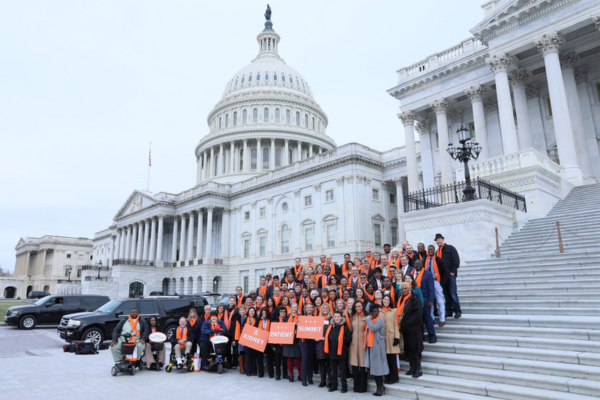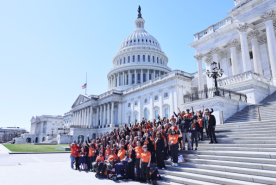February 11, 2025
Every four years, a new presidential term begins, bringing policy shifts that can impact millions—including those living with kidney disease. With the inauguration of President Donald Trump for his second term on January 20, 2025, new policies and leadership changes are taking shape in Washington, D.C.
Alongside the President, the 119th Congress convened on January 3, 2025, welcoming nine new Senators and 63 new U.S. House Representatives. Changes in political leadership influence healthcare policies, research funding, and patient protections—key issues for the kidney patient community.
How Policy Changes Impact Kidney Patients
Changes in the political and policy environment can have substantial impacts on the kidney patient community. The NKF Government Relations team is keeping on top of the flurry of activity out of Washington, DC to understand what the actions of the Administration and Congress mean for the ability of patients to attain kidney health.
Key Policy Actions to Watch
When policies are beneficial to the kidney patient community, we speak out in support. When the actions are harmful, our community pushes back. No matter what, NKF places the needs and desires of the kidney patient community at the forefront.
Recently, actions proposed by President Trump and being considered by the new Congress have caught our attention:
- Executive Orders that make it harder to work towards an equitable healthcare system that meets the needs of all kidney patients, especially those who start on their kidney disease journey from behind.
- Disruptions to the ability of government employees to serve kidney patients and conduct the work our community relies on them to do-like modernizing the U.S. transplant system or providing guidance on the first clinical trials of xenotransplantation.
- Communication freeze from public health officials to the public that makes it challenging to receive timely information on threats to kidney patients, especially those who are immunocompromised.
- Fund research changes that affect the National Institutes of Health's (NIH) ability to work on new treatments and cures for kidney disease and kidney failure.
- Medicaid and Affordable Care Act (ACA) changes that would eliminate health coverage for people with kidney disease and people at risk.
- Changes to immigration policy that may affect the ability of nephrologists, nurses, and other professionals trained abroad to live, work, and care for kidney patients in the United States.
Your NKF Government Relations team is here to keep on top of this rapidly changing landscape. We continue to understand and communicate the implications of these announcements as they work their way through our system of checks and balances.









